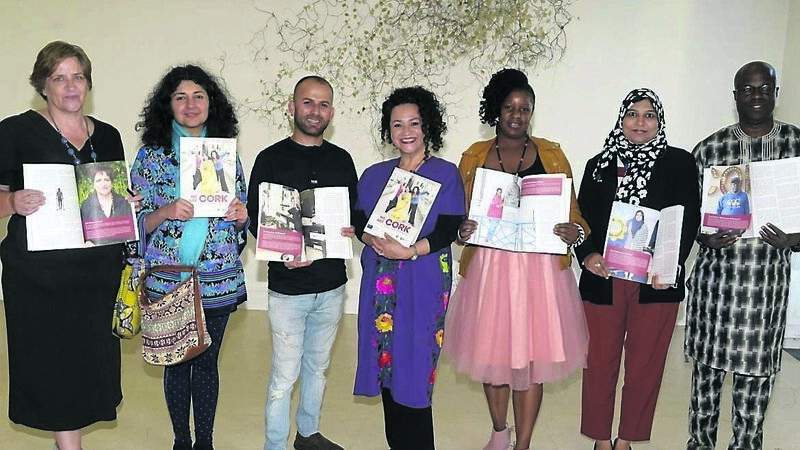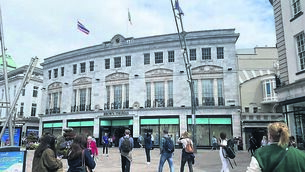24 migrants share story of life in Cork City: "There is no one story of migration"

Pictured at the launch of 'We Are Cork: Stories from a Diverse City' were all the contributors to the report. Picture: Denis Boyle
THE launch of Nasc’s integration report We Are Cork: Stories from a Diverse City is the culmination of a three-year integration project.
The report is an oral history - an exploration of what integration means from the perspective of twenty-four of Cork’s citizens from migrant backgrounds. It is also a celebration of the contribution that migrants make to the rich tapestry of life in Cork. From our hospitals to our libraries, from our salons to our classrooms, the participants in We Are Cork are shaping and enriching the economic, cultural and social life of our city.
The twenty-four participants in the report came from 18 countries across the world and they all shared very personal stories and insights into their experiences of integration in Cork City.
Their reasons for coming to Ireland varied. Some joined family in Ireland and others were drawn by employment offers and others came seeking international protection (asylum). It is really clear that there is no one story of migration and the experiences of our participants varied hugely.
Eight of the participants spoke of their experience of the international protection system and direct provision. They had fled their countries to find safety in Ireland and had found themselves in Cork. One of the participants, Hawrey Mahmoud, spoke of how the recollection of the ordeal of fleeing his country as a child by himself and the uncertainty of what would happen to his family in his absence and described it as “steal[ing] away that sense of security and quiet I had in me.” Another participant, Miriam Shauti Counter, spoke of how her initial relief and gratitude to have a “roof over our heads and enough food to eat for us and our little baby” was replaced by dismay in the long wait for her application for protection to be heard.
Racism and discrimination were also discussed by participants. In her interview Dr Naomi Masheti said, “[w]hen you are a person of colour in the West, the issue of race and ethnicity is always there.”
Participants discussed personal experiences of racism, with Ps Dickson Aribasoye recounting how he had experienced regular verbal abuse on the streets when he arrived in Ireland first twenty years ago. He added that he saw things were gradually changing as Ireland became more diverse. Br Kevin Mascarenhas spoke of racism experienced particularly by Muslim communities and how he wanted to see action taken by government to counter this.
However there were also very positive stories which reflected that the majority of participants felt that Cork was a place where they could raise their families safely and ensure their children had an excellent education. Dr. Mohamed Mutasim spoke of his family finding Cork to be a safe place. His career had seen him work in hospitals in four continents and he felt confident to let his children outside of the house to play without supervision for the first time when his family arrived in Cork. His initial plan to stay for only six months in Ireland quickly changed and he remains here six years later.
There were also multiple stories from participants about individual acts of kindnesses that made them feel like they were part of a community.
One participant, Tehmina Kazi, spoke of asking for directions and finding herself offered a lift instead. Another, Stella Aigbogun, spoke of a stranger rushing to save her child when her buggy almost overturned on the steps near Merchants Quay. Eleven participants also spoke at length of how their neighbours had contributed to their sense of belonging. Nura Hagi spoke of how her “incredible neighbours [..] welcome[d] me with open hands and that alone changed everything.”
In the last 22 years, Ireland has become home to more than 535,475 migrants or people of migrant background. We expect that the Census 2022 figures, once published, will show further increases. We believe that this report is a timely reflection on integration and what we as a city can improve so we can be a safe harbour for all.
The report also shows how each person living in Cork can make a profound difference by reaching out a hand of friendship to their neighbours, classmates or colleagues.
We are a diverse and multi-cultural city in Cork and we should celebrate it.
Fiona Hurley is CEO of Nasc, the Migrant and Refugee Rights Centre. We Are Cork: Stories from a Diverse City is available to download at www.nascireland.org







 App?
App?




